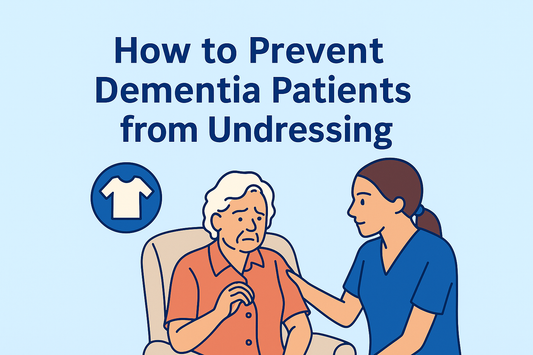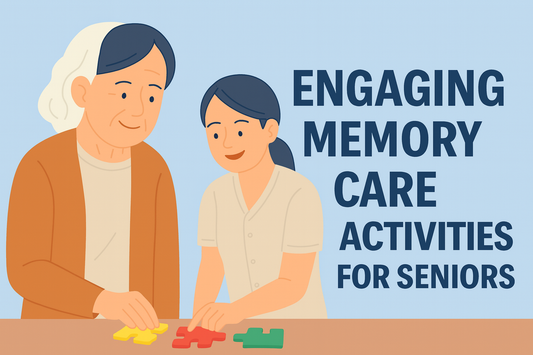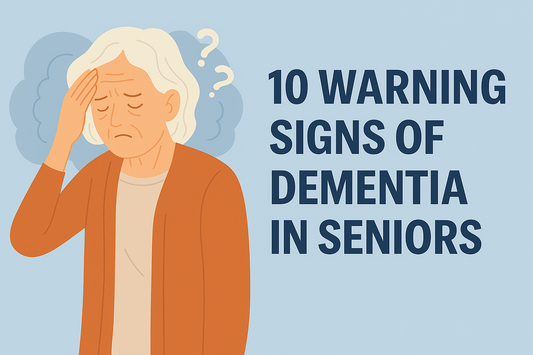
What Is Alzheimer’s Disease? What Is Dementia?
WHAT IS DEMENTIA?
Often, the term dementia is used interchangeably with Alzheimer’s by the average person. However, the former is actually an umbrella term that describes a set of symptoms while the former is a specific type of dementia.
Dementia is not a specific disease. Rather, it is an overall term that encompasses a set of symptoms associated with a decline in memory or other cognitive skills that is severe enough to impair a person’s ability to perform their day to day activities.
QUICK LINKS - TOPICS COVERED:
- WHAT IS DEMENTIA?
- TYPES OF DEMENTIA
- HOW TO SPOT SYMPTOMS OFALZHEIMER’S?
- WHAT IS ALZHEIMER’S
- HOW TO COPE
TYPES OF DEMENTIA
There are over 100 types of known dementia being treated and researched today. However, not all of them are equally prevalent. Four main types of dementias account for most of the cases diagnosed. They are:
Alzheimer’s Disease
Alzheimer’s is the most common type of dementia and is estimated to account for 60-70% of all diagnosis. Symptoms are progressive and inevitably worsens over time.
Lewy Body Dementia
This type of dementia occurs due to the presence of ‘Lewy-bodies’ in a person’s brain. It is frequently underdiagnosed due to its similarity in symptoms that are a combination of Parkinson’s and Alzheimer’s. Symptoms include stiffness or rigidity as in Parkinson’s and cognitive decline as in Alzheimer’s. The key distinguishing factors of Lewy Body Dementia include visual hallucinations and problems with sleep patterns.
Fronto Temporal Dementia
Occurs when there is deterioration to the frontal and/or temporal lobes of the brain. This type of dementia can be caused due to injuries to the brain as well. Symptoms include problems with language and significant changes in personality and behavior.
Vascular Dementia
Vascular dementia is a type of dementia that caused by brain damage traced to cardiovascular problems, or mini strokes that caused bleeding or harm in the brain. It is quite different from Alzheimer’s or Lewy Body Dementia. Symptoms of this dementia includes sudden and/or drastic changes in personality, thinking, or reasoning, following a stroke and depending on the area of the brain affected.
Other types of dementias include, Huntington’s disease, Creutzfeldt-Jakob disease, and Parkinson’s dementia.
Symptoms
Most dementias are generally progressive. Symptoms start out slowly and gradually worsen over time. There are also some types of dementia where the symptoms are more constant and can even be cured by treating an underlying medical condition.
As there are many types of dementias, it should be noted that the symptoms of dementia can vary greatly. However, dementia being an umbrella term, there are some core mental functions that must be significantly impaired in order to be considered dementia. These include:
- Memory
- Communication and language
- Ability to focus and pay attention
- Reasoning and judgment
- Visual perception
Causes
Simply put, dementia is caused by damage to brain cells, where it interferes with the brain cells’ ability to communicate with each other. When this is affected, the brain cannot process relevant information properly. The type of dementia relates to the area of the brain that is affected.
The symptoms of different types of dementias are associated with brain cell damage in different regions of the brain. For example, in Alzheimer’s high levels of damage is see both inside and outside the brain cells, making it difficult for the cells to stay healthy and communicate with each other. One of the first regions of the brain to be attacked is the hippocampus, which is the center of learning and memory. That is why memory loss is one of the earliest and key symptoms of Alzheimer’s.
As mentioned, there are some types of dementia that are caused by underlying medical conditions. These can be improved or even cured when the underlying condition is treated. Examples of such conditions include:
- Depression
- Side effect of certain medications
- Excessive use of alcohol
- Thyroid problems
- Vitamin deficiencies
Treatments and Medications
Diagnosing dementia is difficult. There is no one size-fits-all test to determine if someone has dementia. Diagnosis depends on careful examination of medical history, physical examination, lab tests, and other tools that doctors may use. Pinpointing the exact type of dementia is more difficult as symptoms can be overlapping between different dementias.
With regards to treatments, there is no way to cure most progressive dementias. However, there are drugs that may temporarily improve symptoms and possibly slow down the symptoms. The medications prescribed are usually targeted at symptoms. Therefore, the same medications prescribed for one dementia are sometimes prescribed for other types of dementias.
Doctors may also prescribe other medications such anti-anxiety and sleeping pills to help cope with symptoms such as agitation and difficulty sleeping, respectively.
HOW TO SPOT SYMPTOMS OF ALZHEIMER’S?
Early signs of Alzheimer’s are quite mild and any changes can be ascribed to other causes such as stress, fatigue, etc. Sometimes the person with the disease may not even realize that they are experiencing symptoms as they are usually still able to function independently. They may drive, work, and socialize as they usually do. However, if the memory lapses increase and socialization patterns change, it is important to make note and observe closely.
Some cues to watch out for are:
Problems coming up with the right words
A person may suddenly forget the name of common, everyday objects. They may substitute it with other words to describe an item. For example, the person might refer to a clock as ‘time teller’. They might also mix up words. For instance, they may say ‘bed’ instead of ‘table’.
Trouble remembering names
Remembering names of people can be difficult with Alzheimer’s. The person may either mix up names or completely forget them. This can be especially challenging in a work or social setting.
Difficulty performing tasks
Whether it is performing familiar tasks or new ones, Alzheimer’s can make it challenging. For example, following a recipe can take longer or the end product might not be made correctly. The person may forget to add in an ingredient or add it more than once. Doing new and unfamiliar tasks can also be disconcerting for someone with Alzheimer’s. They may take longer in completing them and the quality of their work might be less. These things can be especially prevalent in the workplace.
Forgetting recent events or conversations
Recent events may not be remembered. For example, a person may ask the same question a few minutes apart or deny having had a conversation with someone the previous day. Another example is when a person doesn’t remember buying groceries and goes out to buy again the following day. A brain with Alzheimer’s has difficulty with recent memory. Older memories are usually intact until further deterioration.
Losing or misplacing things
Losing or misplacing things with increasing frequency is a sign of Alzheimer’s. Whether it is misplacing your wallet or forgetting your house keys, they should be kept not off, especially if it happens more than a couple of times.
Getting lost
With early stage Alzheimer’s, you might find the person getting lost while walking or driving around a familiar area. They might not remember the directions to their destination or they might forget their destination entirely, leaving them confused and scared as to how and why they ended up in their position of the moment.
Difficulty with planning and organizing
Managing one’s finances or running a household requires lots of planning and organizing. When a person has Alzheimer’s, things might start to get chaotic. Bills may not be paid on time, cleaning of the house might be forgotten, or groceries may not be bought.
Changes in personality and behavior
When a person experiences the early symptoms of Alzheimer’s such as memory loss and communication difficulties, they may start to avoid situations that brings their symptoms into prominence. For example, someone who used to be an extroverted personality, may become more introverted to avoid the embarrassment of mixing up with their words or forgetting things.
WHAT IS ALZHEIMER’S
Alzheimer’s is a progressive disease of the brain that slowly and over time causes impairment in memory and cognitive functions. It is estimated that around 60-70% of dementia cases are Alzheimer’s.
As with most progressive dementias, the exact cause of the disease is unknown. The risk of developing symptoms generally begins after the age of 60 and the risk increases as a person gets older. While there are also instances where individuals younger than 60 do get symptoms of Alzheimer’s, it is a rarer occurrence.
When a person has Alzheimer’s, abnormal protein deposits form plaques and tangles in the brain. This causes connection between brain cells to be lost and cells themselves eventually die. Over time, as more and more brain cells die, a person’s memory, cognitive functions, behavior, etc. begin to decline. In advance cases, the brain shows significant shrinkage.
Symptoms
The general symptoms of dementia such as a decline in cognitive functions, memory, and communication is present in Alzheimer’s and worsens over time. Other symptoms that are specific to Alzheimer’s include:
- Memory impairment with regards to remembering recent events or conversations.
- Apathy
- Depression
- Impaired judgment
- Disorientation
- Confusion
- Behavioral changes
- Loss of ability to communicate
- Inability to swallow
- Immobility
*the last three symptoms usually appear during the late stages of Alzheimer’s.
Stages
The progress of Alzheimer’s can be roughly split into three stages, mild, moderate, and severe.
Mild (Early Stages)
- Problems coming up with the right words or name for everyday objects
- Trouble remembering names when introduced to new people
- Challenges performing tasks in social or work settings, especially new tasks
- Forgetting material that one just read or had a conversation about
- Losing or misplacing things such as keys, wallet, etc.
- Increased difficult with planning and organizing
Moderate (Middle Stages)
- Forgetfulness of events and about one’s own personal history
- Feeling moody or withdrawn, especially in socially or mentally challenging situations
- Unable to recall addresses, telephone numbers, and other information
- Confusion about date and time
- Needing help choosing clothing according to season and weather
- Incontinence for some individuals
- Changes in sleep patterns
- Increased wandering
- Personality and behavior changes, including suspiciousness and delusions or compulsive repetitive behavior like hand-wringing.
Severe (Late Stages)
- The person will need round-the-clock assistance with daily activities and personal care
- They would lose awareness of recent experiences and of their surroundings
- Loss of ability to walk, sit, and eventually swallow
- Increased difficulty to communicate. Some may lose it completely
- Vulnerability to infections, especially pneumonia
Treatments and Medications
Alzheimer’s is a terminal illness. It has no cure available. The amount of time a person has between diagnosis and death varies greatly and depends upon each person’s progression. On average, their lifespan is between four to eight years. However, some people can live up to 20 years after diagnosis.
Starting treatment promptly after diagnosis is key to managing the symptoms. It can possibly slow the progression or allow more time before further deterioration. Some commonly prescribed medications for Alzheimer’s include:
- Donepezil
- Rivastigmine
- Galantamine
- Memantine
Other medications may be prescribed to treat particular symptoms of Alzheimer’s, such as anti-anxiety medicines and sleeping pills. Non-drug approaches also help in managing symptoms. This includes maintaining a daily routine, healthy diet, regular physical and mental exercise, and paying attention to non-verbal communication.
HOW TO COPE
A diagnosis for Alzheimer’s is difficult; for both the person being diagnosed and those close to them. The acceptance of a terminal illness is not an easy process and takes some time.
One of the first things that both the patient and their loved one will face after a diagnosis for Alzheimer’s is emotional stress. They may feel a range of emotions including shock and disbelief, denial, anger, grief, fear, and even relief. In order to keep yourself from feeling overwhelmed, journaling, counseling, or attending support group can help in managing those emotions effectively.
It is also important to keep your family and close friends as a source of support. Continue spending time with them. While you may feel inclined to isolate yourself, social interactions can actually be important to your health. In relation to that, you should also prepare for the future of your family. Take the time to put your assets, finances, and other things in order so that a spouse or children can be taken care of.
One way of getting over the fear of the illness is to be prepared for it. Gather as much information as you can. Learn about what to expect as the disease progresses. Understand the symptoms that you are likely to experience at each stage. Know what resources are available for you to take up as the disease progresses. This information can be useful for both yourself and your loved ones to cope better.



